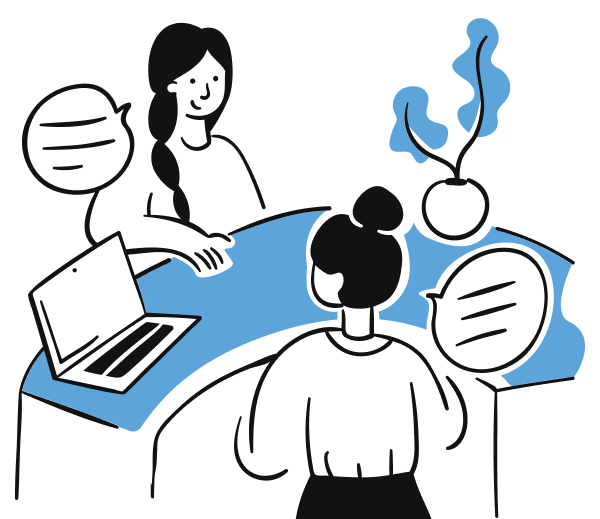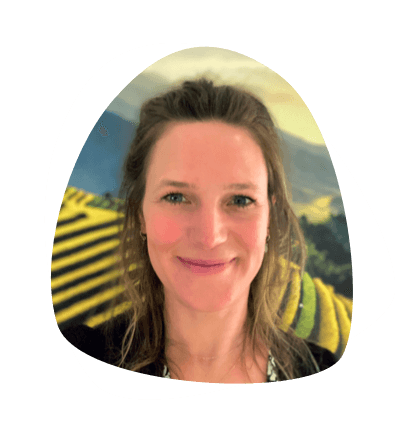Schema therapy is aimed at breaking ingrained patterns that are no longer serving you. It can be used for personality disorders and depressive disorders. Psychologists within iPractice use elements of schema-focused therapy to work with you to recognize and break through existing dysfunctional patterns. You can read all about schema-focused therapy here.
What is schema therapy?
Schema therapy focuses on addressing patterns that are no longer working for you. In psychology, schemas are the beliefs, emotions, and attitudes you have about yourself, others, and the world around you. Examples include harmful emotional beliefs or persistent patterns. These schemas can be or become the cause of mental health problems and harmful behaviors. The dysfunctional schemas are also called ‘traps’.
In schema-focused therapy, you’ll learn to identify your current patterns and traps. You’ll understand your emotional needs and feelings. It is an intuitive therapy, where the therapist combines different types of therapy. It all depends on what your needs are. The goal of schema therapy is: breaking ingrained patterns.
How do you develop unhelpful schemas?
Most schemas develop during childhood. They arise because your basic needs aren’t adequately met as a child. This causes frustration and psychological symptoms. A child’s basic needs include:
- Safety;
- Connection;
- Self-expression;
- Play and spontaneity;
- Self-esteem;
- Autonomy;
- Reasonable boundaries.
A child’s basic needs might not be met due to violence, abuse, mistreatment, bullying, or a lack of love. Too much or too little attention is also harmful: In other words, a lack of care and attention is harmful, but so is being overprotective of a child.
How does schema therapy work?
During schema-focused therapy, a psychologist tries to give you back a piece of what you missed out on as a child. This is done in a warm and understanding manner. In this way, the therapist tries to work with you to repair the schema.
In addition, schema therapy uses a variety of different techniques. These are all aimed at giving you insight into your emotional needs and feelings. And to ultimately break your unhelpful patterns.
Here are some examples of these therapeutic techniques:
- Chair work: This a role-playing game involving two chairs. One chair represents the part of you caught up in a schema and the other is how a healthy adult would think
- Re-experiencing: Here you’ll relive painful moments and traumas through a role play, for example
- Empathetic confrontation: Your therapist works through why your ‘traps’ or unhelpful schemas keep coming up in an understanding manner. But at the same time, they also confront you with the fact that you need to break your patterns.
- EMDR: EMDR is not a standard part of schema therapy, but it can supplement schema therapy. Using EMDR, your therapist helps you to rewrite your past, imagining an alternative scenario where your needs are met.
Schemas and schema modes
Your schemas cause you to switch into a particular mode: A particular version of yourself. Schemas are the way you view yourself, others, and the world around you. A schema incorporates, memories, beliefs, physical sensations, and emotions. A schema arises as a result of:
- Experiences in childhood
- Temperament
- Degree to which your basic needs are met
Positive experiences create schemas that are useful to you. They help you to progress through life. If you were lacking something during your childhood, dysfunctional schemas can develop.
Modes are temporary states of mind activated by your current schemas. A dysfunctional schema leads to a mode that doesn’t serve you.
For example, take a negative belief that you have about yourself. This negative belief is a dysfunctional schema. The belief causes you to have unpleasant thoughts and feelings about yourself. These thoughts and feelings are modes.
Read on here for more information about schema therapy and the different schemas and schema modes that can arise.
Is schema therapy right for me?
Schema therapy is used in a variety of cases, including:
- Personality disorders
- Depressive disorders
- Anxiety disorders
- Eating disorders
Find a schema therapist
Do you want to know if schematherapy suits your needs? Together with a psychologist you will discuss whether elements of schema therapy are suitable for your symptoms. You will be helped with an appropriate and expert treatment.
-
Do you have questions about what schema therapy can do for you? Or are you unsure about when to see a psychologist? Call 085-1308900 or contact us online.
-
At iPractice, you will work with 2 psychologists. Treatment consists of both online contact and regular consultation room sessions at one of iPractice’s locations. Or find more information about the intake and treatment process at iPractice.
-
The cost of treatment is covered by most health insurance companies with a referral letter from the primary care physician and an official diagnosis according to DSM-5 guidelines.


 Nederlands
Nederlands


